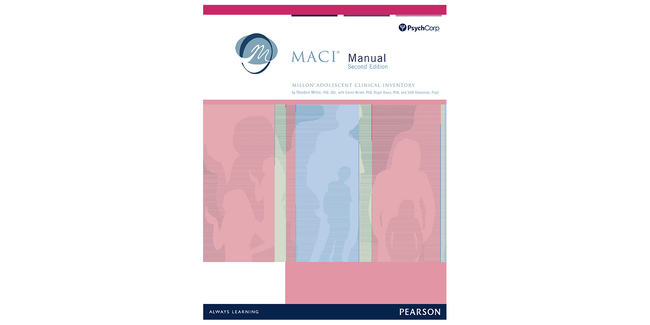Designed specifically for teenagers, the Millon® Adolescent Clinical Inventory helps identify early signs of Axis I and Axis II disorders in adolescents. This dedicated tool, recently enhanced by the addition of Grossman Facet Scales, helps assess personality patterns as well as self-reported concerns and clinical symptoms. Guidance on using this test in your telepractice.
Millon Adolescent Clinical Inventory
MACI
Designed specifically for teenagers, the Millon® Adolescent Clinical Inventory helps identify early signs of Axis I and Axis II disorders in adolescents. This dedicated tool, recently enhanced by the addition of Grossman Facet Scales, helps assess personality patterns as well as self-reported concerns and clinical symptoms. Guidance on using this test in your telepractice.Choose from our formats
Kits
Starter & complete kits, print & digital
1 option
Test forms & reports
Booklets, record forms, answer sheets, report usages & subscriptions
8 options
Support materials
Manuals, stimulus books, replacement items & other materials
4 options
All products
All tests & materials offered for MACI
13 options

